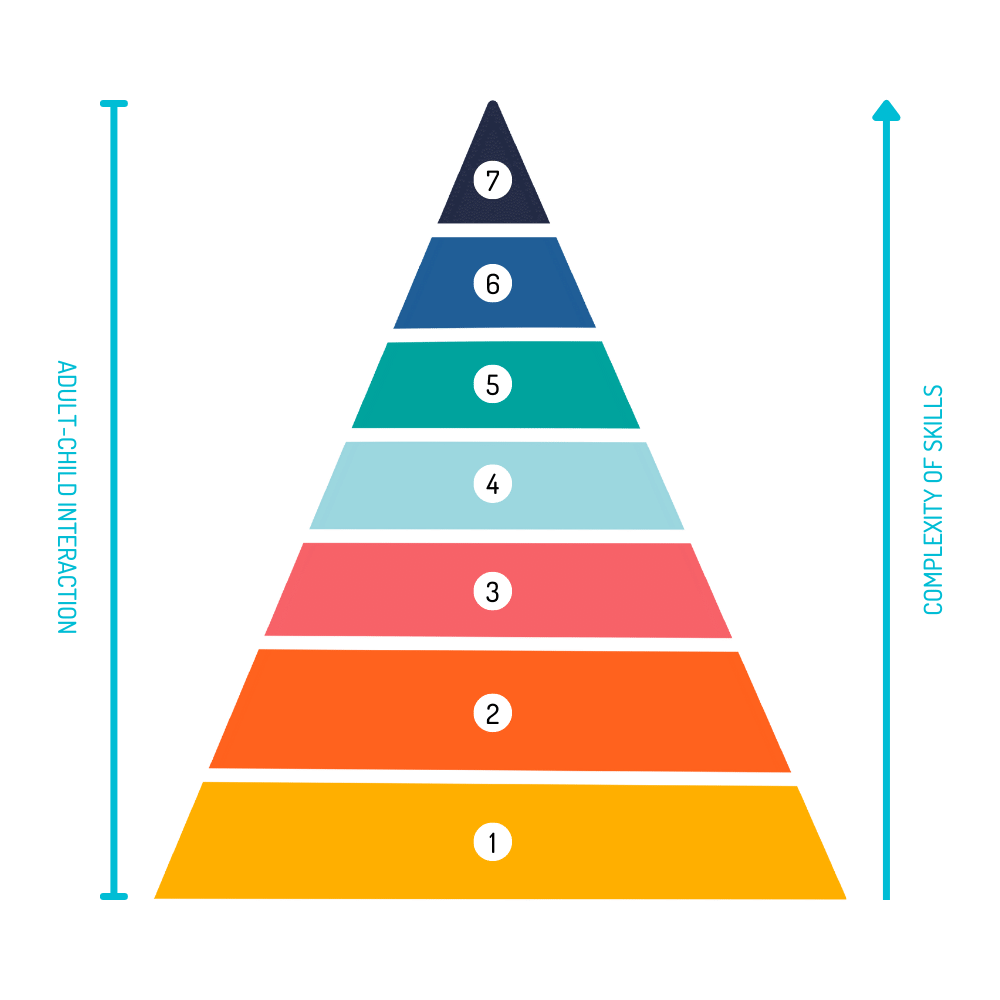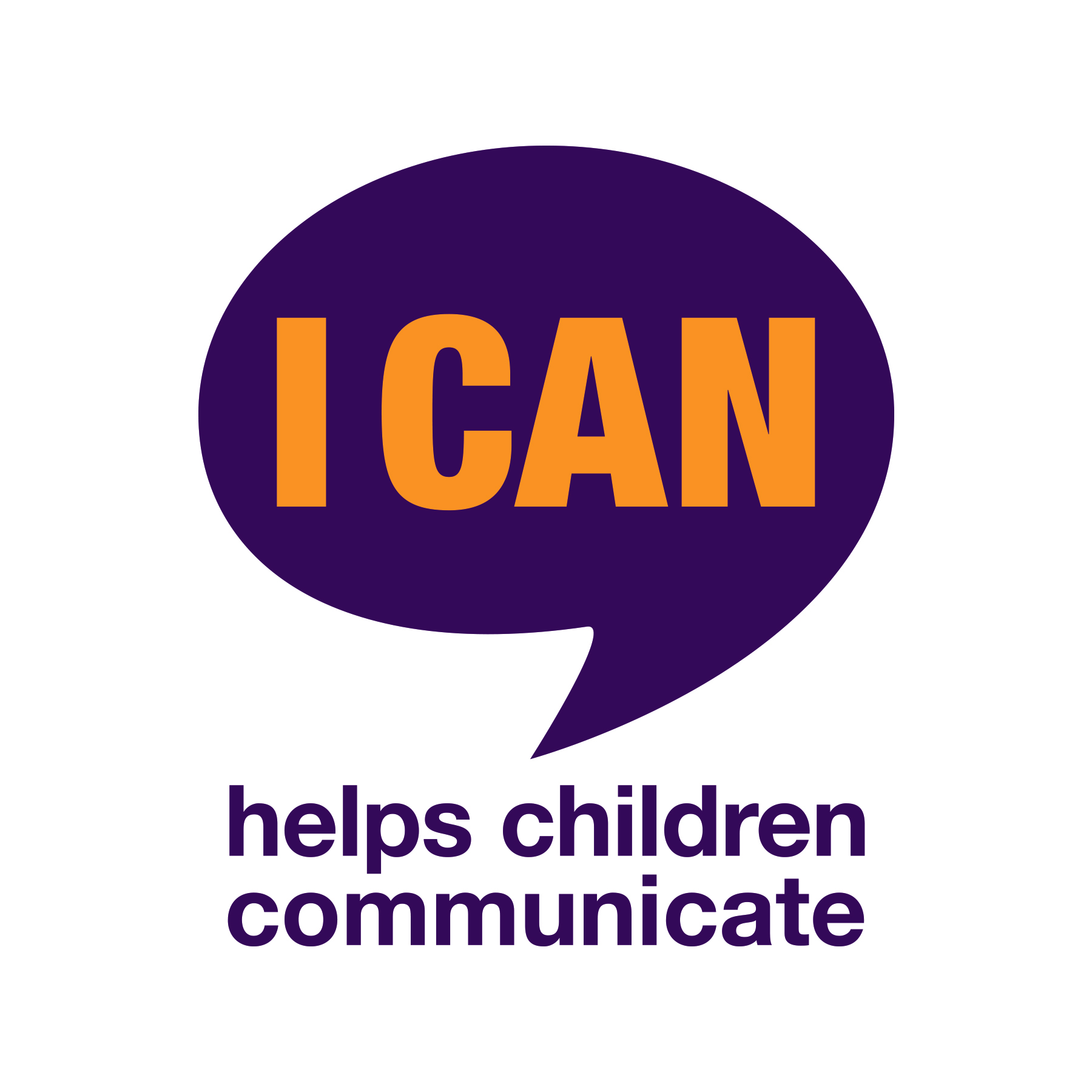Understand how children learn non-verbal and verbal communication skills
The language pyramid shows the skills we need to learn to become articulate functional communicators.

Language development pyramid
Skills at the bottom have to be in place before the skills above them can be developed:
1. Pre-verbal and early interaction. Eye contact, turn taking, pointing, cause and effect, symbolism, joint attention. Typically achieved by 12 months.
2. Attention and listening. Waiting, anticipation, completing short tasks eg puzzle.
3. Play. Functional, symbolic, imaginative, pretend.
4. Understanding. Receptive language. Following instructions/directions, understanding questions
5. Talking. Expressive language. Words eg vocabulary. Using sentences eg grammar.
6. Pragmatics. Using language socially. Conversations, body language, collaborative play, perspective taking.
7. Speech sounds. Eg sh, t, p, m.

Are you concerned or worried about your child’s development?
If so, use the I CAN Talking Point Progress checker to help you to work out how your child is doing and give tips on how to help their speech, language and communication development.

I CAN’s progress checker
The progress checkers will provide short questions you can answer to see how your baby or child is getting on with their speech, language and communication development.
It’s not the same as a standardised measure a specialist would carry out but it should give you an idea of how your baby or child is developing and whether you need some support or advice to help you and them.
What things can help a child
There are certain things that any parent or family member can do to help a child right from their birth. As the child gets older, additional things will help.
We have provided a range of different tips, advice and sources of information that we know can help.
What to do if you have concerns
We have a range of advice and support available for those that need it.

